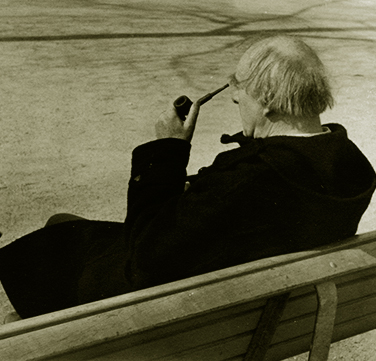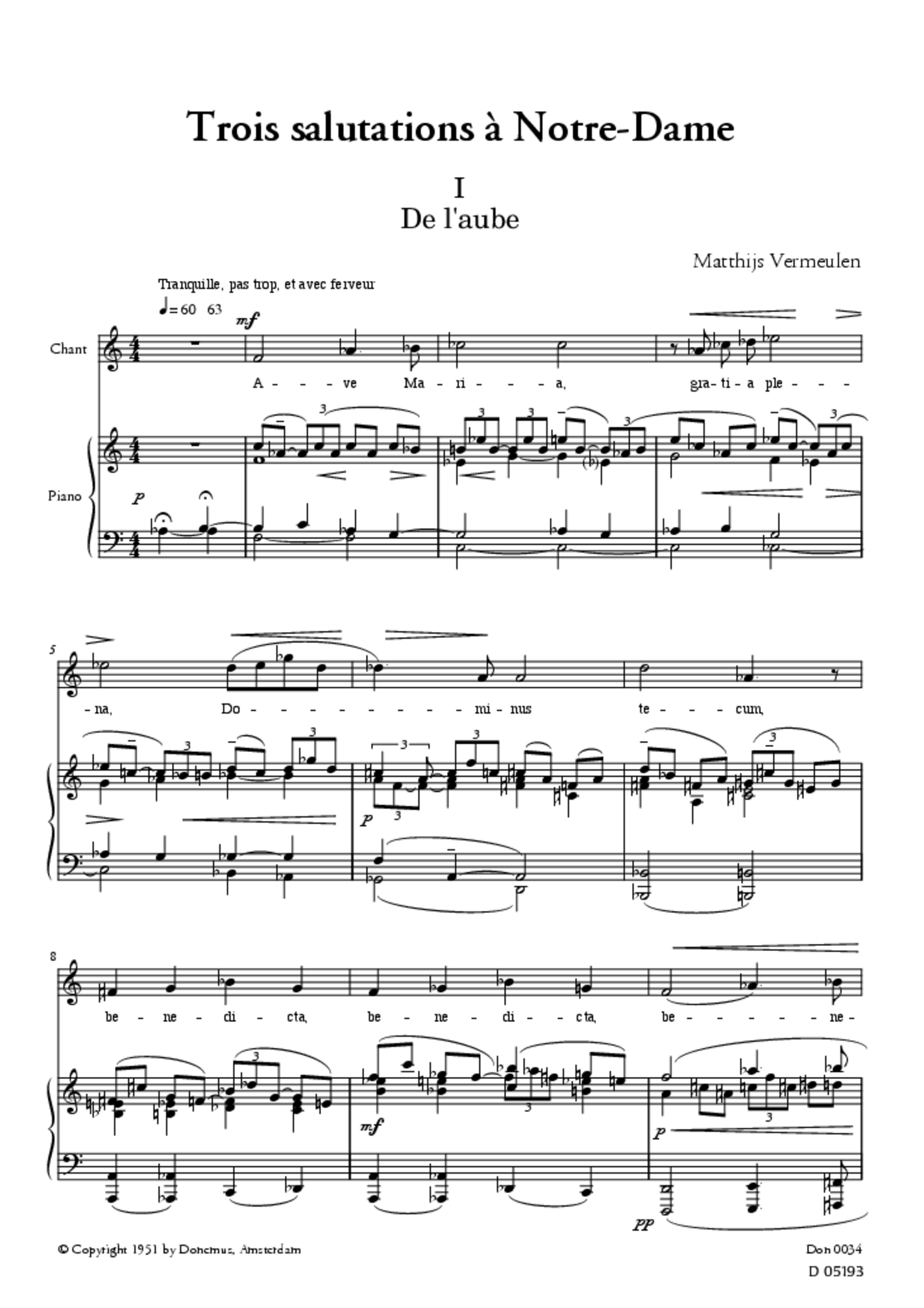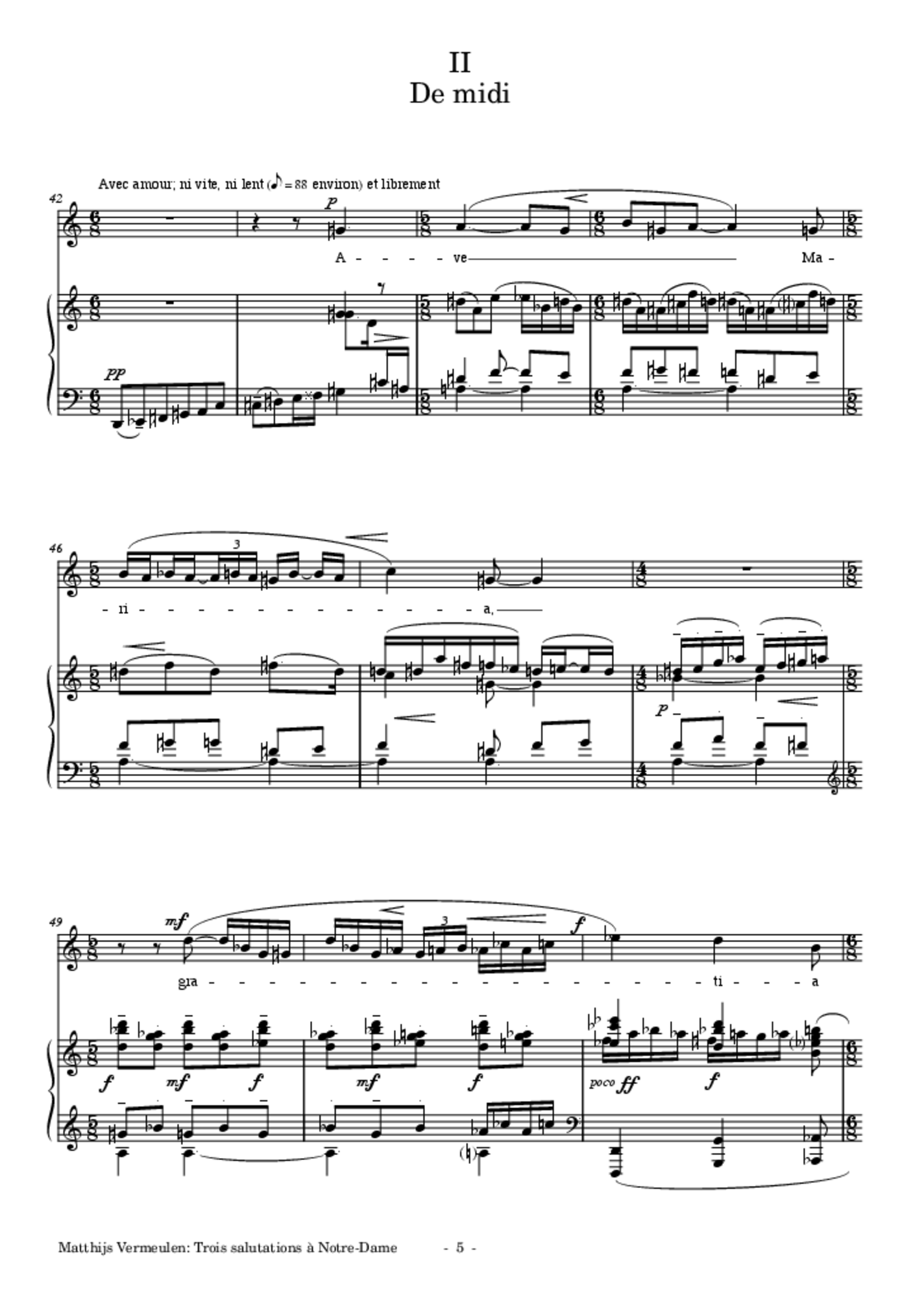MATTHIJS VERMEULEN
Componist, schrijver en denker

TROIS SALUTATIONS À NOTRE DAME for soprano and piano (1941)
After completing his Fourth Symphony Matthijs Vermeulen had the opportunity to fulfil the wish of his daughter Anny. When she converted to the Catholic religion, she asked her father to compose an Ave Maria for her. The song, with the dedication "promesse, enfin tenue pour un anniversaire de Anny", was written in a simple style, and put down on paper in a single day (13 August 1941). But Vermeulen's inspiration did not stop. A second setting of the prayer, which Vermeulen called "a very free melopoeia", in which he attempted to express "the mystery of the words", took a month's time (23 August-30 September). A third one, that served as a conclusion "on a slightly more earthly level", was completed on 6 October. The cycle was given the title Trois Salutations à Notre-Dame and the songs – after Debussy's La mer – "de l’aube, de midi, du soir".
The relatively simple, mainly syllabic vocal part of the first and third Ave Maria bears remarkable resemblance to the melodic structure in Diepenbrock's works. The resemblance to songs by Vermeulen's former tutor can also be found in the technical workmanship and the organ-like character of the polymelodic texture in the piano part, of which the descant is often a diminution of the vocal part and the bass is often in octaves. In the first part with its transparent form consisting of recurring melodies, Vermeulen no doubt tried to relate to his daughter Anny's world. The third Ave Maria, which was dedicated to Vermeulen's oldest son Roland, who had been made a prisoner of war by the Germans in September 1940. It consists of three segments. The outer two have a chordal, bell-like accompaniment that contrasts with the middle section. Vermeulen wrote the second Hail Mary, which due to its long chromatic melismas and full counterpoint bears more resemblance to the style of the Violin Sonata and the Second Cello Sonata, for Josquin, the son whom Vermeulen saw as his alter ego ever since he was born.
The author never heard the songs being performed. He was not able to witness the premiere of the cycle by Lotte Zehm-Hauck, soprano and Hans Dieter Wagner, piano on 15 October 1964 in the 'Musikstudio der St. Bonifatiuskirche' in Mannheim. In the Netherlands the first performance was given by Marjanne Kweksilber and Theo Bles on 25 May 1979.
Ave Maria
Ave Maria, gratia plena, Dominus tecum,
benedicta tu in mulieribus
et benedictus fructus ventris tui Jesus.
Sancta Maria, mater Dei, ora pro nobis peccatoribus,
nunc et in hora mortis nostrae. Amen.


